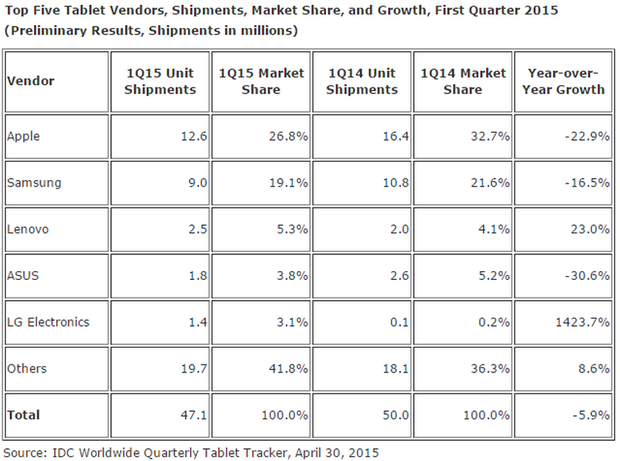Needs, wants, and the Apple Watch

Image: James Martin/CNET
Do you need an Apple Watch? Of course you don't. No one does, really.
But as John Gruber suggests, that may not be the right question. In his mind, the only relevant question is one of desire: "The right question is simply 'Do you want one?'"
While I think this line of reasoning is generally correct, a quick look at tablet sales indicates that it's incomplete. Early iPad sales were driven primarily by desire, not need. Now that market is dwindling.
So the real question for the Apple Watch's long-term prospects, then, is whether the Apple Watch is more like the iPad or the iPhone. Only one of those is a long-term winning bet.
A fine something that nobody needs
Remember how ebullient Apple was at the iPad launch? It was the greatest thing ever. Not merely a portable computer, Steve Jobs sold the iPad as a "magical and revolutionary device."
And guess what? We bought it.
I didn't even like it (much preferring my Amazon Kindle for reading, the only particularly useful reason for me to have a tablet), but bought two. As Gruber says, I didn't need one, but I wanted one.
So did you. Millions of iPads flew off the shelves. Apple touted the burgeoning apps built especially for it, and the ever-growing developer ecosystem around it.
That was then, this is now.
Today, the iPad continues to sell, but it's clearly not magical and, frankly, it's not really revolutionary, either -- it's just an in-between device that isn't small enough to be a phone or big enough to replace a laptop. And sales across the industry show this, as IDC data shows.

Those aren't the kind of numbers that Apple is used to generating. Apple has been growing market share in smartphones and laptops of late, but a 22.9% decline in iPad shipments? Ouch.
Gruber notes that criticism of the iPad was misguided at launch because people mistakenly asked if there was a need for one: "The right question was 'Why would someone who has a phone and laptop also want an iPad?'"
Answer: They don't, and that's why the iPad's sales are slumping.
Apple CEO Tim Cook says it's because iPad sales have been cannibalized by the MacBook Air (the best computer I've ever owned, and I have a few of these) and the larger iPhone 6 (also exceptional). He's probably right, but implicit in this cannibalization is a very real fact:
Very few people need an iPad. It doesn't really solve any particular problem well that isn't more conveniently tackled by an iPhone or a MacBook.
Which brings us to the Apple Watch.
Neither iFish nor iFowl?
It's possible that the Apple Watch fulfills some need particularly well, and will thrive long term (there's little doubt that it will sell well in the short term, if for no other reason than Apple's marketing prowess ensures big launches). There are some apps -- like Uber -- that feel like they fit perfectly on a wrist. Ditto my Marriott app, a food delivery app, etc. You know, things that rely on location and time-specific notifications that take up little room but are more conveniently accessed at a glance.
Do I really need to check the status of my pizza at a glance on my watch instead of my iPhone? No, of course not. But there's enough of a need to justify my want. Mere desire isn't going to get me to buy an Apple Watch more than once.
Apple has been heavily investing in Siri (using open source Apache Mesos) to improve its cloud services like Siri that feed Apple Watch. That should continue to tip the scale on the need/want scale in favor of purchase.
The point is, there can't simply be want, or you get the disappointing iPad. There must be a certain level of need -- generated by the device filling at least one job particularly well for an individual -- to justify paying for the want.
For me, that need/want scale will tip for the Apple Watch when it has GPS baked in, so that I can use it to accurately track distances while listening to my music. I currently solve this use case with an iPod, Garmin watch, and also have a heart-rate monitor. Once the Apple Watch can take care of all three, I'm sold, and I'm somewhat price insensitive.
For you, it will be some different combination that pushes you over the line. But there is no sustainable market for a non-luxury item that can't also satisfy real needs. Not for the Apple Watch, anyway.
So, again, the question: Is this an iPad-like product or an iPhone-like product? I suspect it's more iPad today, but will become more iPhone. We'll see.
Also see
Apple Watch supply difficulties traced to production problems with Taptic Engine
Match the Apple Watch and accessories to best fit your needs
Essential tips for setting up a new Apple Watch

